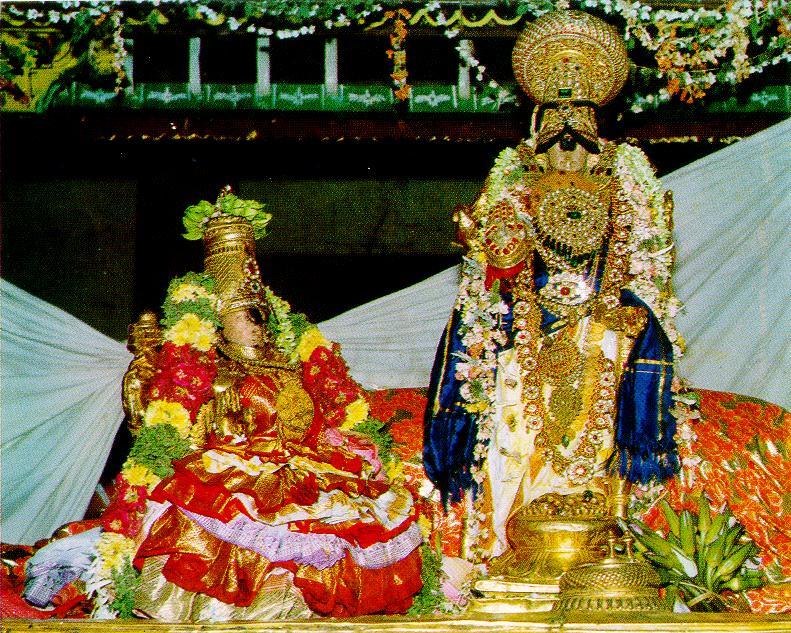| Relative Index |
Sri:
Srimathe ramanujaya namah:
Srimathe nigamantha maha desikaya namah:

| Manthra siddhi of Paadhukha sloka Japams |
Dear Sri RanganAtha PaadhukhA SevakAs :
The individual slOkams of Sri RanganAthA PaadhukhA sahasram have well known powers of granting the desired boons . A paramaikAnthi may not wish to ask for boons from the Lord except dhruva smruthi (unceasing rememberance )about the Lord .
SamsAris have different kinds of worries and they seek the Lord's blessings for different phalans . Our compassionate AchAryan , Swami Desikan inculcated therfore maanthric significance to specific slOkAs for icchA poorthi of samsAris .
Below is the detail of japam on individual slOkams with appropriate sankalpam for desired phalans among the first fifty slOkams. and repeat this identification effort at the stage of every 50 slOkams as we porgress with the blessings of our AchAryan :
Japam procedure :
i) First you have to recite :
SrimAn VenakatanAthArya: ....
(for AchArya vandhanam).
ii) Next the following sankalpam has to be recited:
Sri SriranganAyikA samEtha SriranganAtha SvAmina:
anugrahENa mama chinthitha Kaarya siddhyartham
SriranganAtha Dhivya maNi PaadhukhA sahasra slOka
manthra japam aham karishyE :
Japam yathA sakthi.
iii) recite the slokam
iv) Conclude with kavithArkika SimhAya .... (AchArya Vandhanam ) and say after, "SriranganAtha Dhivya MaNI PaadhukhAbhyAm nama :"
108 counts japam for 45 days are generally recommended. The phalan will be prathyaksham as experienced by our predecessors .
There are specific yanthrams for each day of the week for the ladies of the house to draw in PoojA graham prior to japam .
Paadhukha slokas for different phalans:
| Slokam 1 | For sakala purushArhta siddhi : |
| Slokam 2 | is also for sarvAbhIshta Siddhi . |
| Slokam 14 | is for Vaagartha siddhi: |
| SlOkam 42 | for Sakala kshEmam |
| SlOkam 50 | is for changing dhurbhAgyam to SoubhAgyam |
Sri RanganAtha Dhivya MaNi PaadhukhAbhyAm Nama:
Daasan , Oppiliappan Koil V.SadagOpan
|
|
"Do your karma; Don't expect the fruits of the karma" -- Bhagavat Gita.